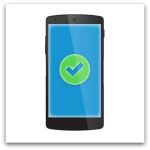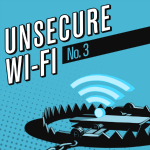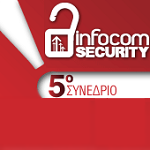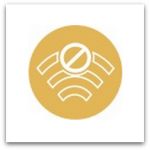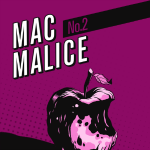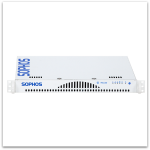News
Sophos announced the availability of Sophos Mobile Control 5, which redefines how organizations secure mobile devices by focusing on users and the way they work. By securing devices, content, and applications with a user-centric approach, Sophos Mobile Control 5 (SMC 5) makes compliance with corporate security policy simple for both administrator and end users across iOS 8, Windows Phone and Android platforms.
To get you acquainted with what’s new, here are 5 great things about SMC 5.
1. Simplified dashboard and workflows.
Instead of configuring, updating and managing each device individually, you can manage rights based on user. IT managers only have to set one policy, from any remote location, to manage the security of corporate content stored on the device or in a personal cloud. SMC 5 also provides administrators with filtering, exporting, sorting, and search across multiple dimensions. This means “find and fix” activities are done in seconds.
2. Secure collaboration between users and partners.
Collaboration between users and partners, and sharing data between devices and the cloud, is all made easier with Secure Workspace in SMC 5. With this mobile workspace, data is automatically encrypted and decrypted between users, applications and cloud environments, so that users can take full advantage of their mobile devices without worrying about security or data loss.
3. Separation of personal and business data.
With more workers choosing to use their personal devices for business, IT faces the complexity of managing corporate security and adhering to personal data privacy laws. Containerization and separation of personal from corporate information means business security and user peace of mind.
4. A redesigned self-service portal saves you time.
The simplified self-service portal allows users to quickly enroll their devices. Simple touchscreen workflows and an intuitive design make it easy for users to take care of their own needs, freeing up your time.
5. Security that works better together.
When we design for users it’s not just about the devices and data that need to be protected, but also the systems they interact with. We believe in building products that work better together, delivering security as a system. SMC 5 provides seamless integration into our UTM offering, which improves security by only allowing managed devices on the network. SMC 5 also manages Sophos Mobile Security to deliver anti-malware for Android devices.
Watch this video to get a closer look at SMC 5. If you’ve been waiting for SMC to support Windows Phone 8.1 or iOS 8, the wait is over. Go to our knowledgebase article for more information on how to upgrade to SMC 5.
You can read the original article here.
Sophos announced the availability of Sophos Mobile Control 5 (SMC 5), to further simplify mobile device management by setting security and data policy by user, across all three major mobile platforms in one solution. New management options enable an administrator to easily achieve the separation and encryption of personal and corporate information, as well as configure access and security settings through automated tasks, reducing management time and costs.
Typically, each device (laptop, tablet, iPad or smartphone) would have to be configured, updated and managed individually, but by managing rights based on user, IT managers only have to set one policy, from any remote location, to manage the security of corporate content stored on the device or in a personal cloud. With a re-designed self-service portal, Sophos Mobile Control 5 makes compliance with corporate security policy simple for both administrator and end user across iOS 8, Windows Phone and Android platforms.
“IT administrators need to secure and manage all the various devices employees use today to get work done – smartphones, tablets, laptops and desktops, but most management tools still treat these devices separately,” says Chris Hazelton, Research Director, Enterprise Mobility at 451 Research. “For small to medium-sized businesses, the ability reduce the number of management consoles can significantly streamline the onboarding process for IT departments that don’t have specialized staff. With the goal of enabling BYOD with simplicity and secure productivity, EMM solutions must enable all forms of mobile computing. This means managing and securing devices, content, and applications with a user-centric approach that delivers the simplest experience for both users and administrators.”
Dan Schiappa, SVP and GM of Sophos’ Enduser Security Group, said: “With more workers choosing to use their personal devices for business, IT managers have been faced with the complexity of managing corporate security, and adhering personal data privacy laws. Managing upwards of four devices per user brings considerable risk into the business, and unnecessarily diverts precious IT resource. By focusing on the user permissions, and with remote management and self-service capability, SMC 5 sets a new standard for usability and simplicity. The redesigned user interface and intuitive workflows make security and management of mobile devices a simple task that takes minimal time.”
Recently named as an enterprise mobility management (EMM) leader by Forrester, Sophos continues to bring enterprise level features to the small and medium business that does not typically have the resources to manage a compehensive BYOD strategy.
“Our relationship with Sophos has allowed us to provide the most comprehensive security to our clients, while still ensuring that we can scale to our customers’ needs. We are testing Sophos Mobile Control 5 and are not only impressed by the easy-to-use console but also by the ability to separate business and personal information. Our current Sophos Mobile Control customers are happy with the complete security this Sophos solution brings to the table and our potential customers are excited about the features in the latest release. This latest version complements the Sophos story nicely and, as a company, we look forward to taking our clients’ security to the next level.” Michelle Drolet, CEO, Towerwall, Inc. a Sophos partner in North America.
You can read the original article here.
Who will cybercriminals target next? James Lyne, Sophos global head of security research, says gangs are creating new ways to attack ever more victims, and improving on the old ways to make more money.
In a new video from the Wall Street Journal, James sounds off on recent and emerging trends in cybercrime, and talks about what’s coming next for security of the Internet of Things (IoT).
James talks about:
- Ransomware gangs that make millions of dollars in Bitcoins by taking files and networks hostage with file-encrypting malware – ensnaring home users, businesses and public sector organizations and demanding a ransom.
- The Lizard Squad gang, which found new ways to attack big companies like Microsoft and Sony, by creating a weapon out of people’s previously innocent home routers, and harming millions of users in cyberattacks that brought down networks.
- The rapidly developing Internet of Things, which is what we call the millions of devices coming online – from security cameras and industrial systems, to connected homes and cars, and exciting and innovative new wearables like the Apple Watch. James asks, how will cybercriminals profit from next-generation IoT devices?
Check out the video to hear more from James and fellow security experts who were interviewed by the Wall Street Journal.
You can read the original article here.
There’s been a bit of buzz in the normally sedate SSL VPN market lately, with Juniper divesting its flagship Junos Pulse (a.k.a. MAG Series or SA Series) SSL VPN product line to Siris Capital – which in turn rolled out a new company to develop and sell the product line.
This big change has caused customers and resellers to evaluate their options for current and future SSL VPN purchases. Also recently, industry analyst firm Gartner released a Market Guide for Enterprise Infrastructure VPNs, in which the authors rightly found, “The VPN marketplace is mature and fragmented, because the capabilities are embedded in other products, such as routers, firewalls, portals, application suites, unified threat management (UTM) appliances and platform OSs. Mainstream VPN vendors offer it as part of a family of networking products and services, which can also include access management and single sign-on (SSO)”.
The authors also noted that “VPNs are alive and well, and have a long future: Companies should continue to use infrastructure VPN encryption methods as one of their security layers, review options in all four scenarios presented in this research and maintain a five-year plan.” The market guide, which is highly recommended reading, lists Array Networks as a representative vendor, and provides market recommendations that are very practical and well thought out.
At Array, we’ve had a singular focus on SSL from the start of the company nearly 15 years ago. In fact, we think of ourselves as ‘The SSL Company.’ Unlike most (if not all) other vendors, we developed our own SSL stack rather than using OpenSSL as a foundation. Through that foresight, Array’s AG Series and SPX Series have been immune to recent sensationalized OpenSSL vulnerabilities like Heartbleed and Man in the Middle (MitM).
Also through our long history as an SSL VPN vendor, our products are very mature with a rich set of features across a product line with models to serve very small to extremely large deployments.
As the Gartner guide noted, “Encrypted communications are fundamental to assuring the safe and secure transfer of business information.” We’ve got the commitment, the architecture, the features, scalability, performance and more to help you ensure a successful SSL VPN deployment.
Juniper SSL VPN Replacement Program
If you’re one of the many Juniper customers and resellers questioning your current SSL VPN options, Array can help! We’re committed to the SSL VPN market, and our AG Series can meet or exceed the capabilities of the corresponding MAG Series or SA Series products.
We’re offering a very attractive program right now to help you migrate to our AG Series, with free hardware and licensing – all you need purchase is a discounted 3-year support contract. Reach out to your Array sales representative or reseller today to learn more.
You can read the original article here.
Every day businesses are creating and accumulating data they need to protect from loss. Of course it’s absolutely vital to prevent data from getting out of your organization – but are you sure you can get it back if you do lose it?
The growing threat of ransomware like CryptoLocker and CryptoWall in the past couple of years has underscored the importance of backups, but it’s not only malware that can destroy your important files. There are many ways to lose data, from theft or accidental loss of a device to device failures and natural disasters.
Backups are critical for keeping your business up and running when a data disaster strikes. So, in recognition of these stark facts, and with a nod to World Backup Day, we’re providing some helpful tips on how to preserve and protect your data.
Here are three key things to consider when building or revamping your backup process.
Will you be using physical backup devices, cloud storage, or both? There are a variety of backup solutions, from hard drives to cloud storage. Backups should be stored on a different device and in a different location from your master copies. It’s a good idea to have redundancy in case one of your backup devices is destroyed or fails. If you’re using a cloud service, you need to trust that the provider has adequate protections in place to keep your data secure and private. Make sure you control access with strong passwords and two-factor authentication.
Are you able to recover the data easily? Not only is backing up important, but you need to able to restore the data in a suitable amount of time. Your data is important for your business continuity. What happens if everything goes down and you need to restore it? Downtime to restore data could cause significant loss of business and harm your reputation, stock value, etc. You should verify that a restoration procedure works. There’s no point in waiting until the worst happens only to find out that you hadn’t been backing up the right data, or the procedure wasn’t done properly.
Are you encrypting your backups? It’s all well and good to have data on your desktops, laptops and servers encrypted – but if your backups are stored in plain text, think of what happens if they get lost or stolen. It’s still a data breach, and you may still be culpable under data protection laws for failing to protect data.
5 more tips to secure your data
You need to have a data protection policy. Here are some tips to help you develop a comprehensive data loss prevention (DLP) strategy.
1. Understand what industry and government regulations impact your organization. Be sure to know which laws apply to you in your region. For example, the upcoming EU Data Protection Regulation requires you to protect data on EU citizens, even if you’re not located in the EU. If necessary, consult a corporate attorney to get clarity on detailed requirements.
2. Identify the types of data you have within your organization. For example, you should identify data covered under regulations and your valuable intellectual property. Determine where this data resides so you can identify the systems you need to monitor.
3. Evaluate the risk and impact of a data breach for each data type. Based on this information, prioritize risks and address the most serious first.
4. Educate users. User training, guidelines and acceptable use policies are critical to the success of your DLP strategy and should be factored into the project alongside any IT activities.
5. Deploy data protection technologies to prevent accidental data loss. Accidents happen—people lose laptops, or send emails to the wrong address. Protect against data loss by deploying security solutions such as content control, device control and encryption to render data unreadable without a password.
For more help on creating a DLP strategy, download our free whitepaper, Don’t Let Data Loss Burn a Hole in Your Budget. This paper guides you through the steps necessary to implement a practical DLP strategy (registration required).
You can read the original article here.
As organizations around the globe become more-and-more reliant on the Internet, a serious weakness has begun to emerge in our connected world.
Since its inception, the Internet has been all about availability; when the Internet goes down, businesses that rely on that availability go down with it. DDoS attacks are single handedly the most serious threat to Internet availability and the benefits derived from being online.
For years businesses have deployed “redundant” sites, circuits, networks, routers, firewalls, switches, servers, applications, and even processes in the attempt to eliminate or reduce downtime due to a failed system or other unexpected outage.
However, all the redundancy in the world will not help when your organization is targeted by a DDoS attack. Redundancy simply goes down with the ship.
This dilemma forces any business to ask the question, “DDoS – whose responsibility it is?” According to a recent survey conducted by a security vendor, 21% of the nearly four-thousand respondents believe it is the responsibility of the network service provider (ISP) or the website/hosting provider to protect businesses against a DDoS attack.
These statistics demonstrate that many believe that their Service Providers or Hosting providers will solve their DDoS problems.
However, not all service providers or hosting providers want to get involved in solving the DDoS problem for their downstream customers. Why? Simple – it costs service providers time and money when they get involved in blocking your DDoS attacks.
Remember the service provider is not under a DDoS attack – you are! When your organization is the target of an attack, the service provider is simply the delivery vehicle for the attack traffic. They’re not the root cause of the attack.
With that said, all businesses must take their own measures to detect DDoS attacks and prevent the outages that would be incurred due to an attack. If businesses believe that their service provider or hosting provider will solve all of their problems, they should look closely at the Service Level Agreements (SLAs) to insure that their service provider will resolve a DDoS attack for them.
If not then it’s really up to the targeted victims to purchase and/or deploy some sort of countermeasure. According to the survey mentioned above, “50% of all businesses agree that specialized countermeasures against DDoS attacks are an important security requirement.
Who do you hold responsible for protecting your network against DDoS attacks?
You can read the original article here.
There has been a flurry of DDoS reports from DDoS protection vendors as of late, and Corero has thrown its hat in the ring as well. The recently released Corero DDoS Trends and Analysis report offers a unique perspective of the growing DDoS threat; offering a stark contrast to the majority of the reports saturating the headlines this month.
The Corero findings are unique and differentiated from other vendor driven analysis of the DDoS landscape, due to the deployment and positioning of the Corero DDoS mitigation appliance in the customer network. The Corero SmartWall TDS is deployed at the very edge of the customer network or at the Internet peering points as a first line of defense, inspecting and mitigating all traffic arriving from the Internet in real time before the attacks impact the customer environment.
Cloud based anti-DDoS solutions, and trends and analysis reports authored by the manufacturers of those products and services only represent DDoS traffic that is re-routed to them for scrubbing, well after the attack has permeated the network. While those reports offer very interesting data points about large scale DDoS attacks, they represent only a fraction of DDoS traffic an organization faces on a daily basis.
For example, in Q4 2014 each of Corero’s protected customers experienced an average of 3.9 DDoS attack attempts per day. In fact, one customer in particular actually experiences an average of 12 attack attempts per day. Additionally, 87 percent of DDoS attack attempts were less than 1Gbps in peak bandwidth utilization, while another 10 percent were between 1-5Gbps in peak bandwidth utilization.
These sub-saturating attacks against Corero’s protected customers, if not mitigated at the network edge with real-time DDoS defense technology, may have gone completely undetected by traditional cloud-based DDoS solutions. Furthermore, utilizing cloud scrubbing services to defeat these attacks would be too little, too late.
The attack would have made it’s way into the network, degraded service and opened the door for the potential of further exploits and data exfiltration activity long before the attack could have been redirected to a scrubbing center.
Cloud based anti-DDoS services combined with on-premises real-time defense offer the Internet connected business comprehensive protection against the total DDoS threat landscape.
In the event that organizations are faced with high volume DDoS attacks that completely saturate the Internet link, switching to the cloud to scrub traffic and re-route to maintain service availability is required. For everyday protection against sub-saturating DDoS events that are increasing in frequency and sophistication requires real-time visibility into the network traffic, immediate detection, analysis and mitigation of DDoS attacks—before the threats penetrate the network.
You can read the original article here.
Late last week industry analyst firm MarketsandMarkets issued a new report on the WAN optimization market that predicted a CAGR of 18.8% from 2014 to 2019, with North America expected to be the largest single market and the APAC region predicted to have a CAGR of 21.2% in that period.
The predicted growth more than doubles the market in just five years. This may be astounding to many – especially compared to overall tepid network equipment market forecasts – but if you drill down into it, you’ll quickly discover what we at Array have been promoting for quite some time:
WAN optimization is the ‘secret sauce’ that makes networks and applications work. It’s that simple. But it’s also a bit complex.
Network/application performance used to be fairly straightforward. Given adequate bits and bytes and speeds and feeds, you could be confident that your network and applications were performing at their peak.
The last five years have been game-changing though. BYOD means that employees can work anywhere, anytime. Applications like Exchange, Oracle and others have become integral to getting the job done. New work concepts like ROWE (Results-Oriented Work Environment) have cropped up, encouraging employees to focus on what matters: the bottom line.
It’s no longer ‘good enough’ to assure the C-suite that your network is providing adequate throughput. What matters now is employees’ perception of your network’s ability to supporttheir efforts in turn. Excessive downtime on a critical application like Exchange server? Slow response times from Oracle? These types of things cause headaches for employees – which will soon become your headache.
Add some Secret Sauce
WAN optimization works by streamlining the data that traverses your network. Put simply, data de-duplication and differencing (with caching) means that data that once was sent multiple times to a local data store now needs be sent only once. Traffic is prioritized so performance for end-users is greatly enhanced. TCP, and even relatively arcane protocols are optimized to eliminate redundant and chatty traffic. Compression further reduces the amount of traffic transmitted over the WAN.
This is, of course, just a small sampling of the many ingredients that combine to make WAN optimization the ‘secret sauce’ of network and application performance. To learn more, visit our WAN optimization solution page, or our aCelera WAN optimization controllers product page.
You can read the original article here.
More and more people are using multiple devices — a laptop for the office, a tablet for customer visits and a smartphone for everything in between.
Our per-user licensing for Sophos Endpoint Protection is affordable and simple to administer. You can protect all your users’ Windows, Mac and mobile devices together. And users can add devices without adding to your security overhead.
Recently we conducted a survey of IT managers to find out how they’re handling the growing challenge of device diversity across their organizations.
We found out that IT departments increasingly need to support Windows PCs, Macs and mobile devices: 78% support or plan to support Macs on their networks, and 41% see the number of Macs increasing in their corporate environments.
Mobile devices are proliferating just as rapidly as Macs, if not more so. Whether it be the iPad Air used by your CEO, the latest Samsung Galaxy smartphone running Android, or the iPhone 6 your users are pestering you to configure for corporate use – you need complete control over all of them.
Mobile devices can access corporate email accounts, corporate Wi-Fi networks, and other data your users share via applications – and that means your IT security is literally in the hands of your users.
With Sophos Endpoint Protection, we’re making it simpler than ever to get control of all your users’ devices. So you can confidently embrace BYOD and support and protect the wide range of user devices.
More reasons to choose Sophos Endpoint Protection
If you’re looking to switch to endpoint protection that’s simply better, we give you five big reasons why you should consider choosing Sophos Endpoint Protection.
Learn more about how you can secure your organization with protection that offers these benefits:
- Innovative technology from an industry leader
- Lighting performance that won’t slow your users down
- Sophisticated simplicity – saves time and easy to manage
- User-based licensing to accommodate a modern workforce
- Flexible deployment – on-premise or in the cloud
You can read the original article here.
Recently we focused on the threat of unprotected Wi-Fi networks to individuals – regular people who might not realize that using free public hotspots found at coffee shops and elsewhere actually leave them open to cyberattacks.
What sometimes goes unmentioned is that those Open Wi-Fi networks leave the owners of those networks vulnerable too. Unfortunately, many small businesses (and even some bigger ones) fail the wireless security test – they’re guilty of one of the more common of the “7 Deadly IT Sins.”
As Sophos Global Head of Security Research James Lyne discovered in his “warbiking” research experiments, around one-third of the Wi-Fi networks he scanned had no encryption or outdated encryption.
That means a hacker could spy on wireless traffic or trick users into visiting phony websites designed for phishing – stealing their account logins, passwords or financial information. These small business Wi-Fi networks often used default network names, and likely default network passwords as well – making it easy for cybercriminals to connect to the network, putting sensitive data at risk.
Bad security practices are common, often because – as James explains in the video – IT departments fail to update configurations over time, what he calls “configuration drift.”
If you’re guilty of the IT sin of unsecure Wi-Fi, we’ve got some tips and resources to help you.
Check out our 7 Deadly IT Sins website to learn more about how to protect your business from this and other security sins.
You can read the original article, here.
“Sophisticated simplicity” sounds like a bit of a paradox. How can something be sophisticated and simple? At Sophos, we bring simplicity to everything we do. It’s easy to use our innovative protection – that’s the sophisticated part – because our products are designed with you in mind.
Sophos is a snap to set up and manage, with just a few clicks. Let’s take a look at how easy it is to use the management console – in both our on-premise and cloud-managed solutions – to give you a better idea of what “sophisticated simplicity” means in action.
Let’s start with the on-premise version of Sophos Endpoint Protection, which (by the way) has won an AV-Test award for Best Usability.
In this video we take a quick look at how to block applications using our Application Control.
With Application Control, you can authorize required applications, and block those your company policy determines should be blocked – such as games – all from the central console.
Other solutions might require you to block each application individually – but with Sophos, you can block applications by type or user group. Τhen there’s Sophos Cloud Endpoint, which independent reviewers say is a “pleasure to use,” and “combines quick performance with ease of use.”
With Sophos Cloud, there’s no servers to set up, because your computers receive protection and updates from servers maintained by us. It’s effortless to deploy, and easy to use and manage.
Admins can log into the Cloud dashboard anywhere, updates and upgrades are automatic, and scalability is unlimited. Plus, we’ve already built in security best practices, so you get effective security settings by default.
Learn more about the simplicity of using our Sophos Cloud management console in this quick video.
More reasons to choose Sophos Endpoint Protection
If you’re looking to switch to endpoint protection that’s simply better, we give you five big reasons why you should consider choosing Sophos Endpoint Protection.
Learn more about how you can secure your organization with protection that offers these benefits:
- Innovative technology from an industry leader
- Lighting performance that won’t slow your users down
- Sophisticated simplicity – saves time and easy to manage
- User-based licensing to accommodate a modern workforce
- Flexible deployment – on-premise or in the cloud
You can read the original article here.
Η ασφάλεια στον κλάδο της Τεχνολογίας Πληροφοριών πάντα αποτελούσε μία προσωρινή λύση. Αγοράζετε ένα προϊόν που επιλύει το ενδεχόμενο πρόβλημα, και μάλιστα αγοράζετε το καλύτερο προϊόν που υπάρχει διαθέσιμο, γιατί πολύ απλά είναι το καλύτερο για κάποιο λόγο, σωστά;
Με τα χρόνια, οικοδομείτε ένα εντυπωσιακό σύνολο από λύσεις που εξειδικεύονται στο να λύνουν συγκεκριμένα προβλήματα, και αυτό σημαίνει ότι είστε πια ασφαλείς.
Ή τουλάχιστον, έτσι λειτουργούσαν κάποτε τα πράγματα.
Αναρίθμητες περιπτώσεις από επιθέσεις υψηλού προφίλ τα τελευταία δύο χρόνια μας δείχνουν ότι αυτή η προσέγγιση έχει αρχίσει να καταρρέει.
Ελάτε στο 5ο συνέδριο Infocom Security, για να μάθετε περισσότερα και να ανακαλύψετε τους λόγους που πρέπει να ξανασκεφτούμε την παλαιά προσέγγιση μας στην Ασφάλεια IT σήμερα, ώστε να διασφαλίσουμε ότι δεν θα γίνουμε είδηση στις εφημερίδες, αύριο.
5ο Συνέδριο Infocom Security
Παρακολουθήστε το 5ο συνέδριο Infocom Security που θα πραγματοποιηθεί την 1η Απριλίου 2015 στο Ξενοδοχείο Divani Caravel. Δηλώστε συμμετοχή συμπληρώνοντας αυτή την φόρμα. Το 5ο Συνέδριο Infocom Security, στο οποίο είναι χορηγός η NSS ως κορυφαία εταιρεία στον τομέα της ασφάλειας IT στη χώρα μας, διοργανώνουν η εταιρεία Smart Press και τα περιοδικά InfoCom και IT Security Professional.
Μη χάσετε την παρουσίαση της NSS που θα πραγματοποιηθεί από τον Jorn Lutters, Pre-sales Engineer της Sophos, με θέμα “It’s time to rethink security for the modern threat landscape” που θα πραγματοποιηθεί στις 10:00 – 12:00 στην 1η ενότητα του συνεδρίου με τίτλο “The New Rules of Cyber Security”. Στην παρουσίαση θα αναλυθεί για ποιό λόγο η φιλοσοφία του “Best of Breed” πολλές φορές δεν έχει θετικά αποτελέσματα

Our Always on the go, but need to stay connected? It might be tempting to log on to free open Wi-Fi networks at airports, cafes and other public hotspots. Don’t do it – those networks offer no protection against hackers looking to steal your identity.
Sophos security expert James Lyne drove home that point on the TODAY Show, as he demonstrated how easy it would be for a cybercriminal to intercept communications on open networks to steal passwords and bank account details.
Just like his previous research experiments in cities like London and San Francisco, James set up an open Wi-Fi hotspot in New York City to see how many people would connect to his network. The results might surprise you.
In the course of a day, more than 2,300 New Yorkers connected to James’s hotspot without knowing if he was out to do them harm. Even more shocking, 109 people agreed to pay $1 to $2 for the privilege, giving away their credit card information to a complete stranger.
Now, we all know that James is one of the good guys – his research is intended to raise awareness about wireless security, because so many people just don’t understand the risks.
Those risks apply to businesses as well as consumers. If your company employees use open Wi-Fi to connect their work laptops and mobile devices to the Internet, just imagine what a hacker could do with access to your employee passwords – the keys to your kingdom.
You can’t leave your users to fend for themselves. Businesses should keep mobile users safe whether they’re in or out of the office. Endpoint security, encryption, mobile device management, and web security are all critical components of a comprehensive security strategy.
The risks are everywhere, but wireless security doesn’t have to be difficult. Check out the video from the TODAY Show to see James’s hotspot experiment and learn how to stay secure.
Wireless security tips for consumers
Stay secure when using Wi-Fi. Follow these 5 easy tips, and get more of our top wireless security tips at sophos.com/wifi.
- Think twice before connecting to a wireless network. The best level of protection for a wireless network is called WPA/WPA2. Don’t use WEP or Open networks.
- Use a VPN (Virtual Private Network) to keep your connection encrypted.
- Make sure you’re using HTTPS or SSL when visiting sensitive websites such as your email or bank.
- Keep your mobile devices and laptops secure – turn off connecting automatically to Wi-Fi hotspots.
- Use an antivirus and always keep your computers, devices and software patched with the latest security updates.
You can read the original article here.
According to ComputerWeekly’s 2015 IT Priorities Report, 46% of IT managers worldwide plan to implement a Bring Your Own Device (BYOD) initiative in 2015, and 30% plan to deploy mobile apps.
If you’re responsible for building your organization’s BYOD policy, there are hundreds, if not thousands, of articles and guides available on the topic – an article by industry consultant Bryan Barringer is one of the most recent, and it carries some very good insights.
Unfortunately, most of the BYOD policy articles overlook a technology that has been the workhorse for secure remote access for more than a decade: SSL VPN.
Originally designed for secure remote PC and laptop access, SSL VPNs have adapted and evolved over the years as BYOD morphed from a buzzword to reality for many organizations. The SSL VPN solutions of today, like Array’s AG Series secure access gateways, offer a wide range of support for smart mobile devices. And, due to their unique position at the network edge, with visibility into the endpoints and policy-based control over access to network resources, SSL VPNs can be your first line of defense for BYOD – the foundation for your BYOD policy, if you will.
For example, Array’s SSL VPN solution provides granular access control based on user and role, and host-checking can verify device and user identity as well as whether the endpoint meets security parameters like anti-virus, anti-spyware, personal firewalls, allowed OS version, etc.
A mobile client supports secure access for native business apps and HTML5 apps via a secure browser, and all data associated with enterprise apps is stored in a secure container to prevent data leakage. The secure container can be remotely wiped in the event of loss or theft of a mobile device, and device-based identification can be used to prevent future SSL VPN connectivity by that device.
One Note of Caution: All SSL VPNs Are Not Created Equal
You may have read over the past year or so of several vulnerabilities associated with OpenSSL, which is commonly used by other SSL VPN vendors. Heartbleed, Man-in-the-Middle, and GHOST are just a few of them. As you’re evaluating SSL VPN options, you may want to ask your vendor if their solution uses OpenSSL. Array’s AG Series uses a proprietary SSL stack, and thus has not been affected by any of the OpenSSL vulnerabilities.
You can read the original article here.
Observing and analyzing DDoS attacks over a period of time helps us all understand trends so that we can better prepare for the future. Verisign has recently published its DDoS Trends Report for the last half of 2014, and there are some interesting observations.
For one thing, attacks are growing larger in size. In the attacks observed by Verisign in the latter half-year span of 2014, 65% were greater than 1 Gbps in size. Some of the largest attacks reached approximately 300 Gbps, but fortunately those were exceptional cases.
Verisign did say it mitigated multiple attacks in the 200+ Gbps range. In all, the average attack size was 12.42 Gbps, which still represents a 291% increase since a year ago. And while the attacks may have been large in size, they were, mercifully, not terribly long in duration.
A common perception is that financial services companies, including banks, are the primary target of DDoS attacks. Perhaps this perception stems from the highly publicized attacks on American banks back in 2012 and 2013.
In reality, for the second half of 2014, the vertical sector most often attacked was Media & Entertainment/Content at 43%, followed closely by IT Services/Cloud/SaaS at 41%. The Financial Services sector caught a break for that half of the year, with only 5% of the DDoS attacks hitting that industry.
The attacks are showing increasing complexity, sometimes quickly and unpredictably changing vectors over the course of the mitigation. For example, Verisign saw sophisticated TCP and UDP floods that targeted specific custom application ports and continuously switched vectors. Attacks are growing more sophisticated in their ability to evade common mitigation approaches.
It’s clear that DDoS attacks have reached a point where specialized mitigation techniques are necessary. It’s noted that some companies simply try to over-provision bandwidth and other resources in order to absorb attacks, but that approach is not only needlessly expensive, it’s hardly feasible anymore as attacks grow in size and complexity. It’s simply an arms race that the defending company is doomed to lose without the right mitigation weapons.
You can read the original article here.
Macs are gaining ground on PCs everywhere, including at the office. Companies are adopting programs that allow users to bring their own devices, or choose the corporate-owned devices they prefer.
When given the choice, many employees are going with what they have at home, and picking Macs over Windows computers. With more Macs, that means extra challenges for IT, from troubleshooting to security.
You’ve heard of the seven deadly sins. We think the 7 Deadly IT Sins are pretty bad too – and neglecting security on Macs is a sin we call “Mac malice.”
Don’t give Macs a pass on security
Macs have a reputation for security that probably has more to do with Apple’s clever marketing than reality – Macs can get malware too.
Even if Macs are less-frequently targeted by malware than PCs, Mac users still use bad passwords, fall victim to phishing or other social engineering, and lose their laptops (and the valuable data on them). And a false sense of security could make Mac users more careless about security than PC users.
“An astounding number of Mac users still believe that they are immune to malicious code,” says James Lyne, Sophos global head of security research. “It’s actually astonishingly easy to create malicious code for the Mac. And as most Mac users don’t use antivirus, it often goes undetected.”
There have been some big security failures that prove just how vulnerable Macs are. Apple’s own employees had their Macs compromised by malware in February 2013 via a vulnerability in Java. In 2012, an attack on another vulnerability in Java infected 600,000 Macs with the Flashback malware.
Just like any other software, Mac OS X needs to be patched against vulnerabilities that attackers can exploit to compromise users and steal data. You may have heard of Shellshock, FREAK, or Goto Fail – all of those security bugs affected Macs. If Macs aren’t protected, they can also spread Windows malware across your network, putting your Windows users at risk even if Mac users aren’t affected.
How to protect your Macs
In the video below, you can watch James use a simple tool to launch an attack that allows him to take over a Mac to do anything a user could do, like turn on the web camera, search files – and possibly gain access to other parts of your corporate network.
It’s fascinating and scary, but James offers some security advice too. Fortunately, it’s easy to protect Macs with the right security solution.
Τhe 7 Deadly IT Sins
Learn more about Mac malice, find out how to keep all your Macs secure, and see if you’re guilty of other security sins on our 7 Deadly IT Sins website.
You can read the original article here.
Our customers rely on us for innovative protection against today’s evolving threats. And with Sophos, there’s no need to compromise on performance. We know performance matters. Users want their security to operate quietly in the background so they can focus on their jobs, without lagging performance due to software updates and virus scans.
Sophos Endpoint Protection is lightning fast, runs well on older systems, and updates quickly with low system impact. You don’t have to believe us – independent tests prove it, and our customers back it up.
Better protection, better performance
Independent tests from AV-Comparatives show that Sophos has one of the best performance impact scores in the industry. Sophos customers back up those test results with real-world experience.
When the Lassen County Office of Education switched to Sophos Endpoint Protection, they saw noticeable performance improvements. “Prior to Sophos, a weekly virus scan would slow our PCs down to the point that it crushed our users’ productivity,” says Robert Talley, IT director for Lassen County. “But Sophos is such a light footprint that our users don’t even notice a lag when scanning is in progress.”
Our lightweight agent and small definition updates (typically about 30KB) mean that initial deployment, updates, and daily use are super-fast and produce minimal overhead. And you get great performance whether you’re on Windows, Mac, or Linux.
More reasons to choose Sophos Endpoint Protection
If you’re looking to switch to endpoint protection that’s simply better, we give you five big reasons why you should consider choosing Sophos Endpoint Protection.
Learn more about how you can secure your organization with protection that offers these benefits:
- Innovative technology from an industry leader
- Lighting performance that won’t slow your users down
- Sophisticated simplicity – saves time and easy to manage
- User-based licensing to accommodate a modern workforce
- Flexible deployment – on-premise or in the cloud
You can read the original article here.
Corero Network Security, a leading provider of First Line of Defense security solutions against DDoS attacks, today announced enhancements to its SmartWall Threat Defense (TDS) System, now delivering adaptive, analytics-driven DDoS protection for superior network intelligence and infrastructure availability. By algorithmically detecting and defeating emerging DDoS attack vectors, Corero is providing network and security teams with a powerful tool to keep up with the evolving DDoS attack landscape. This enables organizations to better respond to events, protect their customers, and ensure maximum availability.
Corero is eliminating the need for human intervention in the event of a DDoS attack with the introduction of its powerful Smart-Rule and Flex-Rule filter technologies to analyze and filter malicious attack traffic, combined with automatic anomaly detection and rate-limiting. Attacks are blocked in real-time with a do-no-harm approach, allowing legitimate user traffic to flow unimpeded throughout the duration of the attack.
Smart-Rule Adaptive Filtering Technology
With its patent pending Smart-Rule adaptive filtering technology, Corero is enabling true automated detection and response in the face of newly detected DDoS attack vectors. The Smart-Rule leverages both heuristics and behavioral analysis to track, detect and mitigate attacks using patent- pending algorithms. It determines variances from normal behavior and subsequently applies specific and targeted filtering to block single as well as multi-vector attacks.
Flex-Rule On-Demand Countermeasures
Corero is also launching Flex-Rule on-demand countermeasures, arming its customers with a powerful ad hoc filtering capability to allow operators to identify and remove certain classes of DDoS attacks that are not easily mapped to a static protection rule. The SmartWall TDS uses the Flex-Rule with heuristics and closed loop policy allows the SmartWall TDS to quickly determine the nature of an attack and automatically create a countermeasure. This mechanism reduces overall operating expense by allowing operators to concentrate on other forms of security threats impacting the organization.
“This latest technology release supports customer demand for automatic mitigation, utilizing a closed loop system response to even the most sophisticated DDoS attacks,” said Dave Larson, CTO and Vice President, Product, Corero Network Security. “The SmartWall TDS inspects traffic at line rate, and as new DDoS attack techniques are identified, sophisticated analysis determines the need for customizing detection filters and blocking the attack immediately, vastly improving attack visibility, advanced threat protection and time to mitigation.”
Additional new features and benefits of the SmartWall TDS 8.07 include:

Alerting, Reporting and Heuristics:
Corero’s SecureWatch Analytics, a complementary tool to the Corero SmartWall TDS, now offers Splunk query capabilities to provide customizable DDoS identification filters for sophisticated alerting, reporting and attack mitigation. This heuristic approach automates defense capabilities and adapts to the evolving DDoS threat landscape, providing customers with advanced real-time protection. With these capabilities, hosting providers, service providers and online enterprises around the world leveraging Corero’s DDoS protection products and services can guarantee service availability and ensure business success.
Open Hybrid Cloud Signaling:
Corero’s open hybrid cloud signaling capabilities provide customers with a hybrid approach to their DDoS defense efforts by combining the benefits of Corero’s leading on-premises solution with the scale of cloud-based anti-DDoS technologies. The SmartWall TDS can connect to any cloud based anti-DDoS service that supports the API, closing the DDoS mitigation loop between cloud and on-premises defense. This enables businesses with an on-demand provider for back up services in the event of massive, volumetric DDoS attacks to initiate that service in a timely manner based on the attack visibility provided by the Corero SmartWall TDS on premises.
Scalability, Power and Performance:
The Corero SmartWall TDS remains the performance leader for in-line DDoS protection, offering the lowest power consumption and smallest footprint, with the highest throughput in defeating DDoS attacks. Capitalizing on the next generation DDoS protection architecture, the Corero SmartWall TDS scales to individual protection clusters supporting up to 160 Gbps of Internet throughput, managed through one centralized console. Customers worldwide are using the SmartWall TDS to protect themselves against the damaging impact of DDoS attacks, with some protecting more than 200 Gbps of peering bandwidth.
Τhe easiest Secure Web Gateway with the best protection is getting a lot faster and smarter… and soon! The team has been working hard over the last several months to deliver a new version of the Sophos Web Appliance so we’re very pleased to announce the roll-out of v4 will get underway at the end of March.
Version 4 brings some of your top requested enhancements:
- Lightning Performance with limitless connections and 3-7x the performance on existing hardware
- Added visibility with a new user activity snapshot and detailed timeline report
- Granular controls over common social web applications like Facebook, Youtube, Twitter and more
Timing and Availability
As usual, existing Sophos Web Appliance customers get this upgrade at no extra charge which will be applied automatically to all Sophos Web Appliances (hardware and virtual) during their regular update window sometime during the first few weeks of April as the roll-out gets underway. No action is required to take advantage of this great new upgrade.
New customer orders shipping at the end of March will include the latest v4 release direct from the factory. If you’re an existing SWA customer and would like to get early access to a beta release of v4, feel free to contact us a swabeta@sophos.com.
Lightning Performance
With more traffic using HTTPS and more complex sites requesting high numbers of concurrent connections and holding them open persistently, proxy capacity and performance is increasingly important. In version 4 we’ve completely re-architected the proxy engine in the Sophos Web Appliance with a brand-new high-performance proxy that can deliver 3-7x the performance on existing hardware, with no limit on connections. It injects a whole new life into existing hardware or virtual appliance installations.
To get the latest sizing guidelines for the full line of hardware or virtual appliance instances, check our updated product technical specifications:

Added Visibility
For those looking for additional reporting, we’ve got some great new enhancements in that area as well. We’ve added a new Browse Summary by User Report that shows a user’s web activity over the course of a day, week, or month. It can be accessed easily from the User Report Section.

You also get a new detailed timeline report which allows you to dig deep into the details of what sites a user visited during certain time periods. If you get a complaint about someone surfing inappropriate content on a Friday afternoon, this report will help you identify exactly what sites they visited during a specific time period, including the number of hits to that site and the exact time. This new report is accessed from the “Search” section.

Granular Controls
One request we receive often from customers and partners is for control over features on popular social web applications like Facebook chat or games.
With version 4.1 following shortly on the heels of v4, we’re adding granular social web app controls to do exactly that. You’ll get a set of easy policy controls to disable unwanted features of popular social web applications like Facebook, LinkedIn, Twitter, YouTube and more. And you can apply these new controls to individual users or groups along with the rest of your policies.
Here’s a mockup of what that might look like:

More Information
If you’re new to the Sophos Web Appliance, check out our Secure Web Gateway solutions.
The release notes and documentation will be updated as soon as they are published towards the end of March.
As mentioned above, existing Sophos Web Appliance customers get this upgrade at no extra charge which will be applied automatically to all Sophos Web Appliances (hardware and virtual) during their regular update window sometime during the first few weeks of April as the roll-out gets underway. No action is required to take advantage of this great new upgrade.
If you’re an existing SWA customer and would like to get early access to a beta release of v4, feel free to contact us a swabeta@sophos.com.
You can read the original article here.
The security of mobile devices and the Internet of Things is surprisingly lax, especially compared to traditional desktops. James Lyne, global head of security research at Sophos, proved just how insecure these devices really are, in a presentation at the Mobile World Congress in Barcelona.
In his live demonstration, James demonstrated tricks that a modestly talented cybercriminal could use to compromise mobile devices and Internet-connected closed-circuit cameras (CCTV).
In our video below, you can watch James hack into an Android tablet over Wi-Fi to record video and audio, and see how insecure CCTV cameras that use weak or no passwords can be breached from the other side of the world.
As James predicts in his report on the top 10 security trends for 2015, IoT manufacturers have failed to implement basic security standards, and attacks on these devices are likely to have nasty real world impact.
And despite the vast quantities of data stored on our mobile devices, many users are unaware of the need for better security. Google’s Android is the market leader, but the majority of Android devices are running older versions that are insecure against the latest attacks.
“These problems are easy to fix. They require us to take the lessons we learned in the PC and apply them quickly – now,” James said.
Watch James’s fascinating presentation!
You can read the original article here.






